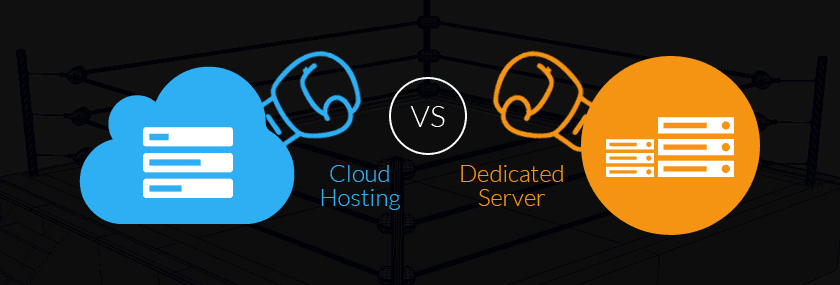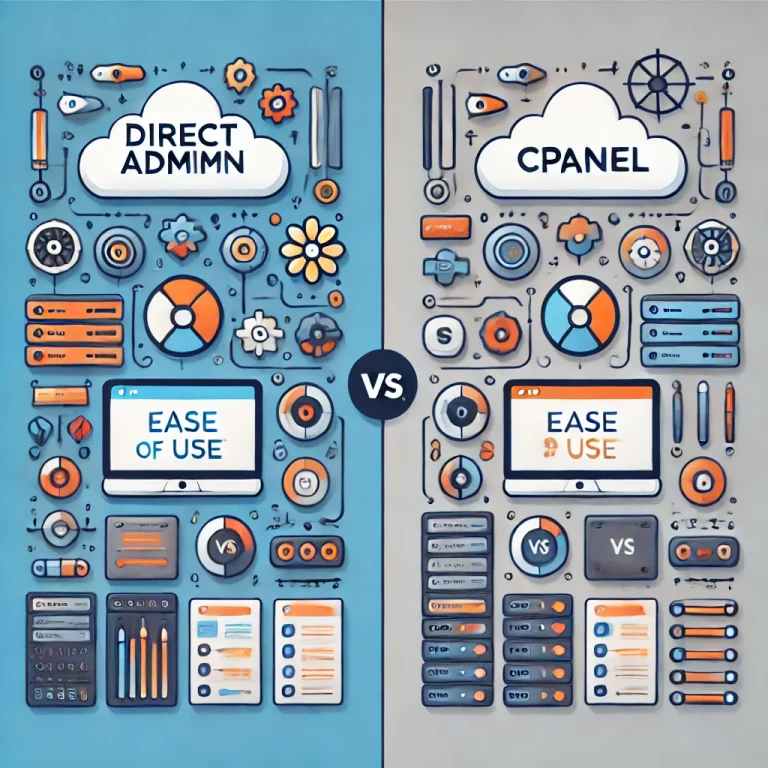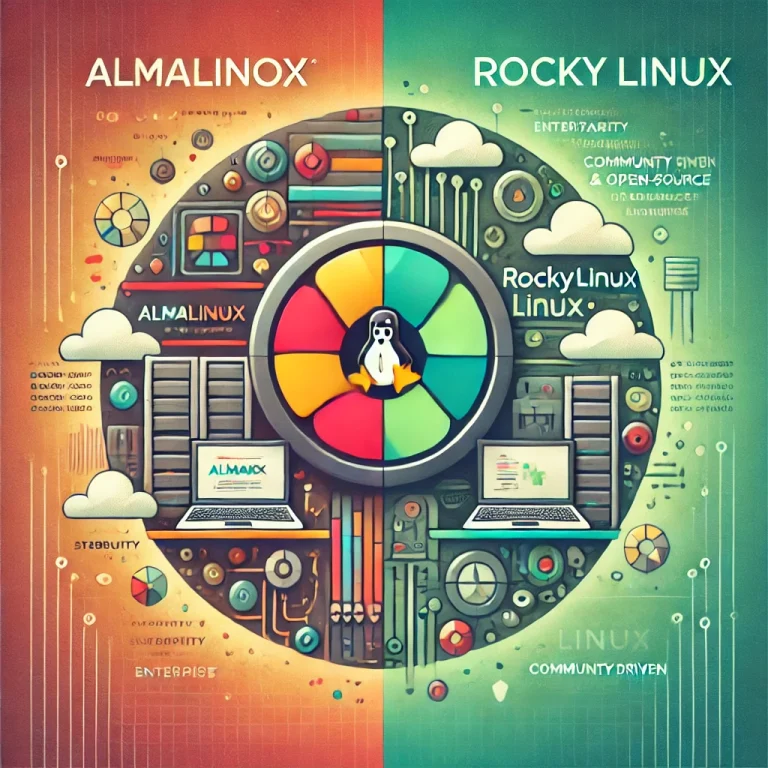Cloud Servers vs Dedicated Servers: Choosing the Right Hosting Solution for Your Business Needs
As businesses transition to more sophisticated and scalable hosting solutions, understanding the key differences between cloud servers vs dedicated servers becomes essential. Both options cater to unique performance, scalability, and security needs. Choosing between a cloud-based server and a dedicated server can dramatically impact your business operations, data security, and future growth.
In this guide, we’ll explore the details of each option, covering everything from performance to security and scalability. Whether you’re a business seeking efficiency or a developer in need of robust resources, this article provides a comprehensive look at the features, advantages, and potential limitations of cloud servers vs dedicated servers.

Table of Contents
Comparing Cloud Servers vs Dedicated Servers
What is a Cloud Server?
A cloud server operates on a virtualized infrastructure, meaning resources are shared across multiple machines, offering flexibility and scalability. These servers are often hosted on large cloud service provider (CSP) networks like AWS, Google Cloud, or Microsoft Azure, where they leverage a vast pool of computing resources.
What is a Dedicated Server?
A dedicated server is a physical server entirely allocated to one client. Unlike a cloud server, a dedicated server offers exclusive resources, with fixed amounts of CPU, RAM, and storage. This exclusivity is ideal for applications that require consistent, high-performance computing, especially for businesses handling significant workloads or sensitive data.
Performance Comparison: Cloud Servers vs Dedicated Servers
Performance in Cloud Servers
Cloud servers are highly flexible, making it easy to adjust resource allocations like memory, storage, and processing power as demand changes. However, because resources are shared across multiple tenants, performance can be affected by “noisy neighbors,” particularly when running resource-intensive applications.
Performance in Dedicated Servers
With a dedicated server, performance is more stable and predictable since the entire machine is reserved for one client. Applications that require substantial computing power or consistent resource availability perform optimally on dedicated servers. As no resources are shared, latency is lower, making dedicated servers ideal for high-performance applications like IPTV Hosting, game hosting, Streaming, data processing, and real-time analytics.
Scalability: Cloud Servers vs Dedicated Servers
Cloud Servers Scalability
One of the most significant advantages of cloud servers is their scalability. You can quickly add or reduce resources as needed, making it an excellent choice for businesses with fluctuating demands. The cloud environment enables elastic scaling, meaning it can automatically scale up during peak times and scale down when demand decreases.
Dedicated Servers Scalability
Dedicated servers, while powerful, are limited in scalability compared to cloud servers. Scaling a dedicated server often requires hardware upgrades or additional servers, which can be time-consuming and expensive. However, businesses with predictable workloads may not require as much flexibility, making dedicated servers an adequate choice.
Cloud vs Server Security: Ensuring Data Protection
Security in Cloud Servers
Security in cloud-based servers is robust, as cloud providers invest heavily in security measures like data encryption, multi-factor authentication (MFA), and regular security patches. However, because cloud resources are shared, there are inherent security risks. Data breaches or improper access controls on multi-tenant infrastructure could potentially expose data if not adequately managed.
Security in Dedicated Servers
Dedicated servers offer heightened security, with data isolation being a key benefit. Since these servers are used exclusively by one client, they reduce the risk of cross-tenant data breaches, making them suitable for applications that must adhere to stringent compliance standards, such as healthcare or financial services. Additionally, companies have full control over security configurations, which can be customized to meet specific compliance requirements.
Cloud Servers vs Dedicated Servers for Cost Efficiency
Cost of Cloud Servers
Cloud servers are highly cost-effective for businesses that need flexibility. They typically operate on a “pay-as-you-go” model, allowing businesses to pay only for the resources they use. For start-ups or businesses with fluctuating demands, cloud servers are budget-friendly since there’s no need for upfront hardware investment.
Cost of Dedicated Servers
Dedicated servers usually require a higher upfront investment since clients pay for exclusive hardware. Monthly or annual contracts are common, and businesses have to consider the costs of hardware upgrades. Despite the higher cost, dedicated servers can be a better long-term investment for applications requiring consistent, high-performance resources, where predictable cost structures are beneficial.
Reliability and Uptime: Which Option Is More Dependable?
Reliability of Cloud Servers
Cloud servers are generally reliable due to their distributed nature. If one server in the network fails, another can quickly take over, minimizing downtime. Major providers like AWS and Google Cloud maintain uptime guarantees of 99.9% or higher, offering Service Level Agreements (SLAs) to back their reliability claims.
Reliability of Dedicated Servers
Dedicated servers provide reliable performance but rely heavily on the underlying hardware. If a hardware failure occurs, it may require physical maintenance, leading to potential downtime. That said, many hosting providers offer backup and disaster recovery solutions to ensure high availability.
Choosing Between Cloud Servers vs Dedicated Servers for Your Business
When to Choose a Cloud Server
A cloud server is ideal for businesses that:
- Experience fluctuating resource demands
- Need a flexible, scalable solution
- Operate on a budget and prefer a pay-as-you-go model
- Prioritize rapid deployment of new resources or services
When to Choose a Dedicated Server
A dedicated server is preferable for:
- Applications requiring constant high-performance and low-latency
- Companies handling large-scale data processing
- Businesses with stringent security and compliance requirements
- Enterprises seeking predictable costs over a longer term
The Future of Hosting: Hybrid Solutions
Many businesses are now adopting hybrid solutions that leverage both cloud and dedicated servers. A hybrid model can offer the best of both worlds, with cloud servers providing scalability and dedicated servers ensuring optimal performance and security for critical applications. This approach allows businesses to utilize dedicated resources for sensitive data and leverage cloud servers for applications that require flexibility and rapid scaling.
FAQs
What is the main difference between a cloud server and a dedicated server?
The main difference is in resource allocation. Cloud servers operate on a virtualized infrastructure shared among multiple clients, while dedicated servers offer exclusive, single-tenant resources.
Is a cloud-based server secure?
Yes, cloud-based servers are generally secure, with providers offering strong security measures. However, since resources are shared, there can be additional security considerations.
Are dedicated servers more reliable than cloud servers?
Dedicated servers can provide more stable performance, but cloud servers offer redundancy and failover capabilities, often resulting in higher overall reliability.
Which is more cost-effective: cloud servers or dedicated servers?
Cloud servers offer a “pay-as-you-go” model, which can be more affordable for businesses with varying needs. Dedicated servers may have higher initial costs but can be more cost-effective for long-term, high-performance needs.
Can I combine cloud servers and dedicated servers?
Yes, many businesses use a hybrid approach, combining the scalability of cloud servers with the security and performance of dedicated servers.
Is scalability easier with cloud servers or dedicated servers?
Cloud servers are more scalable, allowing businesses to add or reduce resources quickly. Scaling dedicated servers often requires physical upgrades or additional hardware.
Conclusion
Choosing between cloud servers vs dedicated servers depends on your business’s unique needs and goals. Cloud servers provide unmatched scalability and flexibility, making them suitable for businesses with fluctuating demands. In contrast, dedicated servers offer reliable performance and enhanced security, ideal for organizations handling sensitive data or requiring high resource consistency. With hybrid solutions also available, businesses now have the flexibility to tailor their hosting environments for optimal efficiency, security, and performance.






